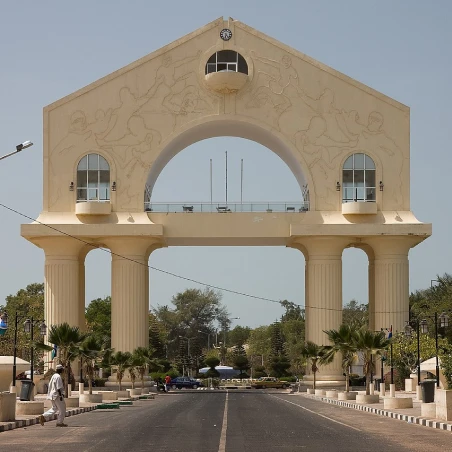Table of Contents:
- What is the average cost of a trip to Portugal?
- What is a daily budget for a budget traveler?
- What is a daily budget for a mid-range traveler?
- What is a daily budget for a luxury traveler?
- How much are flights to Portugal?
- How much should you budget for accommodation in Portugal?
- What is the cost of transportation within Portugal?
- How much does food and drink cost in Portugal?
- What is the cost of activities and sightseeing in Portugal?
- How can you stay connected in Portugal with an eSIM?
- What are other potential costs for a Portugal trip?
- Do you need a visa for Portugal?
- What is the cost of travel insurance for Portugal?
- How do travel costs vary by region in Portugal?
- How can you save money on your trip to Portugal?
- When is the cheapest time to visit Portugal?
What is the average cost of a trip to Portugal?
The average trip to Portugal costs, based on recent traveler reports, around $192 (€165) per person per day, making it one of Western Europe's more affordable destinations. Think of this as a starting point for your budget. Of course, your actual daily expenses will depend on your travel style. Your choices in four main areas will shape your total cost:
- Accommodation
- Transportation
- Food
- Activities
To give you an idea, a one-week trip for two people typically costs about $2,686 (€2,310), according to data from popular travel sites. Believe me, these numbers can feel abstract at first, but they provide a solid baseline. A solo traveler might spend an average of roughly $5,755 (€4,950) for a one-month stay. Your budget will differ greatly if you're a backpacker staying in hostels versus a luxury traveler choosing high-end hotels and fine dining.
What is a daily budget for a budget traveler?
To keep costs low, budget travelers can get by on as little as $78 (€67) per person per day, based on data from budget travel guides. This approach means you'll focus on saving money by:
- Staying in hostels
- Using public transport
- Prioritizing free activities
The best way to keep costs down is to live like a local: eat at bustling markets, get lost exploring cities on foot, and focus on free attractions like public parks and historic streets.
What is a daily budget for a mid-range traveler?
A mid-range budget of around $192 (€165) per person offers a comfortable experience, covering mid-range hotels, meals at popular restaurants, and some transportation. Unlike a strict budget, this amount allows for more sightseeing, including entrance fees for major museums and attractions.
What is a daily budget for a luxury traveler?
For those seeking ultimate comfort, a budget of around $450 (€387) per day unlocks Portugal's most exclusive experiences. This gives you access to upscale hotels, world-class dining, and premium excursions with services like private drivers and unique sightseeing tours.
How much are flights to Portugal?
Your flight will likely be one of the biggest single expenses for your trip to Portugal. International flight prices depend on your departure city, the season, and when you book. Round-trip economy tickets from major international hubs typically range from $500 to $1,500; off-season flights from San Francisco (SFO) to Lisbon (LIS) can start at $481, while fares from Newark (EWR) to Porto (OPO) begin around $745. Meanwhile, business class tickets can cost $3,000 to $4,000 or more.
To find cheaper flights, travel during the shoulder season (spring and fall) or off-season (winter). Prices peak in the summer. Booking several months in advance and being flexible with your travel dates can also lead to big savings on flights to Lisbon, Porto, Faro, or the Azores and Madeira islands.
How much should you budget for accommodation in Portugal?
Accommodation costs can change dramatically based on where you go, what time of year you travel, and the type of lodging you choose. On average, you can expect to pay about $144 (€123) per night for a double-occupancy hotel room, or just $72 (€62) per person if you're sharing. For budget travelers, hostels are a much more affordable option. Hotel and vacation rental prices increase sharply during the peak season, especially in popular areas like Lisbon, Porto, and the Algarve.
To lower your accommodation costs, consider traveling during the off-season or shoulder season. Booking your lodging several months ahead also helps lock in a lower price. For families or groups, a vacation rental can offer better value than multiple hotel rooms, saving you money.
What is the cost of transportation within Portugal?
You'll find that transportation in Portugal won't break the bank, with travelers spending an average of $31 (€27) per person on daily local transport. Your cheapest option for getting around is always going to be public transport. Major cities like Lisbon and Porto have efficient trains, buses, and metro systems, which are significantly cheaper than taxis or rideshare services. While public transit is perfect for navigating cities, you'll likely need to rent a car to fully explore regions with more limited service, such as the Algarve.
How much does food and drink cost in Portugal?
One of the highlights of any trip to Portugal is the food—and thankfully, it's as affordable as it is delicious. The average person spends around $77 (€67) per day. This makes sampling local cuisine an accessible part of the experience. For those on a tighter budget, it's possible to eat well for €25 to €30 per person daily.
Want to find budget-friendly meals? My personal advice? Explore local markets and 'tascas.' These small, family-run eateries offer authentic food at lower prices. At lunchtime, save money by ordering the 'prato do dia' (plate of the day), a full meal for a low, set price. It's a great way to try famous dishes like the Francesinha or desserts like pastéis de nata without overspending. The country's lower cost of living also extends to drinks, so you can enjoy local Port wine or vinho verde affordably.
What is the cost of activities and sightseeing in Portugal?
Your budget for activities and sightseeing in Portugal will average around $25 (€22) per person per day. This amount typically covers entrance fees for museums, cultural attractions, and day tours. If you enjoy nightlife, alcoholic beverages can add an extra $19 (€16) to your daily spending, so decide if that comes out of your food budget or a separate fund. Prices for these activities often rise during the peak season, especially in Lisbon, Porto, Sintra, the Algarve, and the Douro Valley. But the good news is, many great experiences, like walking through historic districts or visiting public beaches, are free.
How can you stay connected in Portugal with an eSIM?
The easiest way to avoid high roaming charges is with an eSIM (embedded SIM). Think of it as a digital SIM card that lets you download a local data plan right to your phone, so you're connected the moment you land without having to hunt for a physical SIM. For me, this has been a total game-changer. For travelers and digital nomads, the main benefit is avoiding expensive international roaming charges. You can purchase and activate a plan instantly, ensuring you have data the moment you land.
To stay connected without any hassle, you can get a dedicated eSIM for Portugal that offers various data plans to suit your needs. This means you'll have reliable internet for maps and staying in touch, giving you a more reliable and secure connection than you'll often find with public Wi-Fi.
If you’re planning an extended stay in Portugal, or considering it as a base for remote work, having reliable connectivity becomes even more important. Many travelers fall in love with the country’s lifestyle and end up exploring remote or local work opportunities while abroad. Platforms like Jooble can help by listing remote Portuguese-related roles you can apply for from anywhere.
With an eSIM keeping you connected from day one, staying online is effortless. You can search for job opportunities, submit applications, or stay on top of freelance projects without worrying about unstable Wi-Fi. It’s a simple way to make sure your longer stay in Portugal is both enjoyable and productive.
What are other potential costs for a Portugal trip?
Always budget for potential costs beyond the main spending categories. These little extras can add up and include personal items like souvenirs, forgotten toiletries, or tips. We always recommend setting aside a small buffer for unforeseen events like medical issues or travel disruptions. You should also account for potential visa fees, depending on your nationality, and the cost of travel insurance.
Do you need a visa for Portugal?
Portugal is part of the Schengen Area, which sets the rules for who can enter. Citizens from many countries, including the US, don't need a visa for tourist stays up to 90 days within a 180-day period. But keep in mind, starting in 2025, these travelers must get an ETIAS authorization online before their trip. Anyone planning a longer stay for residency will need specific travel documents for visas like the D7 Visa or Digital Nomad Visa.
What is the cost of travel insurance for Portugal?
Travel insurance offers financial protection against unforeseen events and we highly recommend adding it to your trip budget. The price depends on the traveler's age, trip duration, and the desired level of coverage. A good policy will cover you for medical emergencies, trip cancellations, and lost luggage. When comparing plans, check for specific coverage like scooter rental accidents or emergency medical evacuation, which can be relevant for a trip to Portugal.
How do travel costs vary by region in Portugal?
The cost of a trip to Portugal changes a lot depending on where you go, so your itinerary will have a big impact on your budget. Major cities like Lisbon and Porto, along with popular spots like Sintra and the Douro Valley, have a higher cost of living. That means you'll find more expensive accommodation, food, and activities. The same goes for the coastal Algarve region, where prices for lodging and services soar during the summer peak season.
For more affordable experiences, you can explore less-visited areas. A great budget-friendly alternative is the Alentejo region, with lower costs for lodging and local dining. You'll save money by choosing these less-traveled paths, and you'll get a more authentic taste of Portuguese life.
How can you save money on your trip to Portugal?
Want to lower your travel budget for Portugal? Here are a few simple ways to do it: Trust me, a little planning goes a long way.
- Travel off-peak: Visiting during the shoulder season (spring and fall) or off-season (winter) results in cheaper flights and accommodation.
- Book in advance: Secure lower prices by booking flights and lodging several months before your trip.
- Use public transport: Rely on Portugal's efficient and affordable public transport system, especially the metro in Lisbon and Porto or the regional trains for city-to-city travel, instead of more expensive taxis.
- Choose budget-friendly accommodation: Find great value in hostels or by staying in neighborhoods just outside the main tourist centers.
- Eat at local spots: Save money by dining at local markets and small restaurants ('tascas'), and always look for the 'prato do dia' (plate of the day) at lunchtime for a complete, inexpensive meal.
- Mix free and paid activities: Balance your spending by combining paid attractions with free experiences, like exploring historic areas on foot or enjoying public beaches.
When is the cheapest time to visit Portugal?
The cheapest time to visit Portugal is during the low season, from November to March, excluding holidays. January is often the most affordable month to plan a trip. During these winter months, you'll find the lowest prices on flights and accommodation. The main trade-off is cooler weather, but a major advantage is seeing popular sites with far fewer crowds than during the expensive summer peak season.
Sources
Posts you might also like




